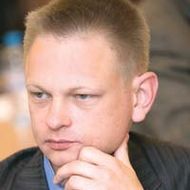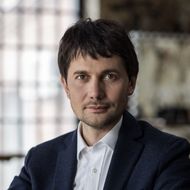HSE University to Launch New Carbon Test Site

A new HSE-operated carbon project—the Pokrovsky agricultural carbon test site—will soon be launched in the Moscow, Kaluga and Kirov regions. Its main purpose is to monitor greenhouse gas flows in the respective ecosystems to assess their carbon balance. The project is expected to produce the first Russian prototype of a comprehensive monitoring framework for ecosystems in agroforestry-based carbon farming.
HSE University has built a consortium of partners from the industry and academia, including the RAS Shemyakin-Ovchinnikov Institute of Bioorganic Chemistry, the Federal Williams Research Centre of Forage Production and Agroecology, the Kaluzhsky carbon test site, and Uralchem United Chemical Company.
Participating HSE University departments include the Technology Transfer Centre, the BRICS Competition Law and Policy Centre, and the Tikhonov Moscow Institute of Electronics and Mathematics.
The test site personnel will select the best candidate plants which absorb carbon dioxide to create a digital system for biomass monitoring, develop a concept for the carbon farming industry and an organisational and legal model of a carbon farm, and more.
Back in 2021, HSE published a report entitled 'A Battle for the Climate: Carbon Farming as a Stake for Russia', which provides an overview of the country's emerging agroforestry and carbon farming industry and its potential.

Andrey Zhulin
'Almost 50 countries worldwide either have carbon exchanges already or at least a framework for their carbon credit markets,' says Andrey Zhulin, HSE Vice Rector and Director of the Office for Expert Analysis. 'Each year, more countries are entering this market, and Russia could become a major player there. Carbon farming makes it possible not only to reduce the carbon footprint and protect Russia's agriculture, but also to benefit from cooperation with the domestic energy sector and other industries and from selling carbon credits on global carbon exchanges. We aim to develop the full cycle of operation, from establishing a package of crops to providing verification and monitoring technologies to setting up certification systems.'

Alexey Ivanov
'Most of the technological solutions envisioned in the Pokrovsky test site project will be implemented in the Kirov and Kaluga regions. The project site in the Moscow region will be used to collect data, analyse it using machine learning and big data tools provided by HSE, and then apply mathematical modelling,' explains Alexey Ivanov, Director of the BRICS Competition Law and Policy Centre and Academic Supervisor of the Centre for Technology Transfer. ‘Our partners at the Williams Research Centre of Forage Production have measurement data available on pastures and fodder crops, and on various agroclimatic landscapes that the Centre's team has collected over its more than 70 years of operation. The project site in the Moscow region is unique in terms of the local data available and will serve as a springboard for expanding the project from Moscow to other regions.'
In February 2021, the Russian Ministry of Science and Higher Education launched a pilot project to set up carbon test sites in the Russian regions to develop and field-test carbon balance control technologies. These sites include forest, marine and farming areas with specific ecosystems and equipped with technology to control GHG absorption and emissions. The programme document underlying the establishment and operation of the Pokrovsky carbon test site has been reviewed and endorsed by the Ministry of Science and Higher Education's Expert Council responsible for academic support of carbon balance control technology development. There are 15 functioning carbon test sites in Russia today.

